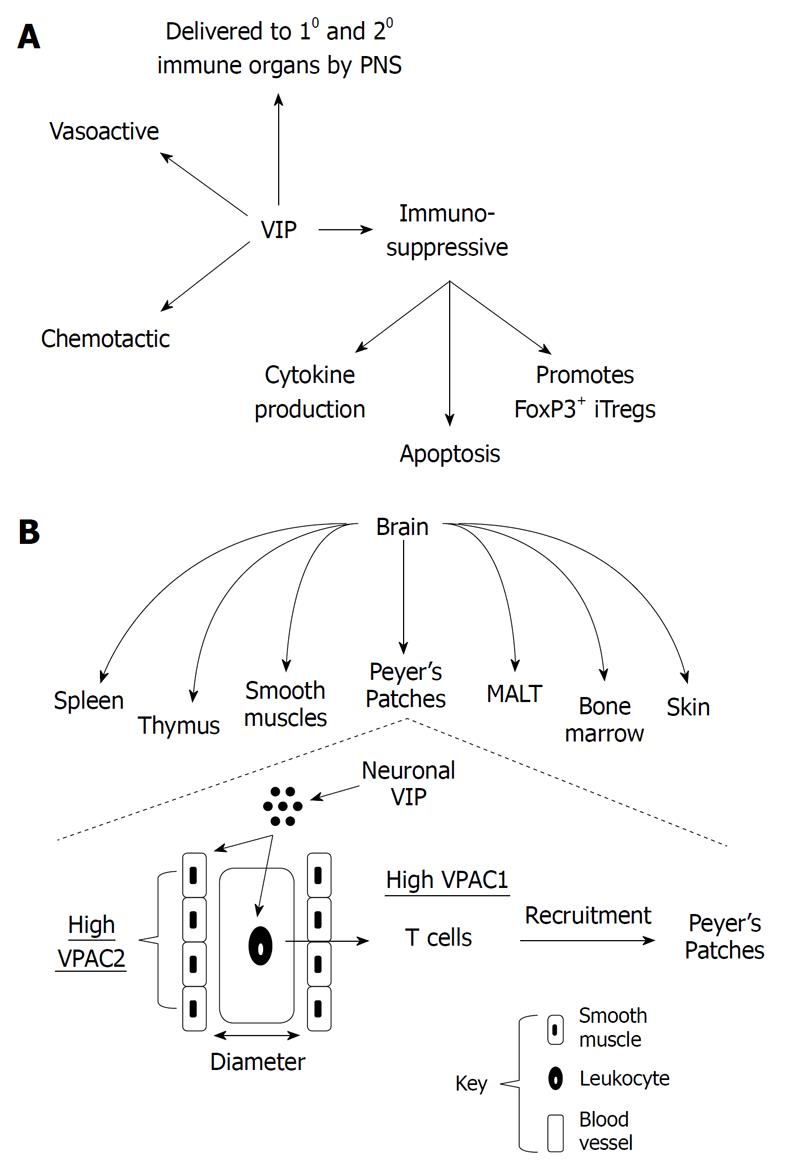Copyright
©2011 Baishideng Publishing Group Co.
World J Biol Chem. Jun 26, 2011; 2(6): 146-160
Published online Jun 26, 2011. doi: 10.4331/wjbc.v2.i6.146
Published online Jun 26, 2011. doi: 10.4331/wjbc.v2.i6.146
Figure 1 Neuroimmunomodulation by vasoactive intestinal peptide.
A: Vasoactive intestinal peptide (VIP) is delivered to primary (10) and secondary (20) immune organs by the peripheral nervous system (PNS), which affects the metabolism of cells in close proximity through its vasoactive properties (vascular smooth muscle cells) and its chemotactic activities on resting T lymphocytes. During TCR signaling, VIP is immunosuppressive directly on T lymphocytes by: inhibiting proinflammatory cytokine secretion/production, inhibiting apoptosis and promoting FoxP3+ inducible T regulatory cells; B: Delivery of VIP ligand to immune cells in indicated anatomical compartments (immune and non-immune) that represents a division of labor for VIP/vasoactive intestinal peptide receptor (VPAC)2 signaling (vasoactive; smooth muscle cells) and VIP/VPAC1 signaling (chemotactic and immunosuppressive; directly on lymphocytes) in an effort to effectively target trafficking naïve T cells to appropriate immune compartments such as Peyer’s Patches within the gut. MALT: Mucosa associated lymphoid tissue.
- Citation: Dorsam GP, Benton K, Failing J, Batra S. Vasoactive intestinal peptide signaling axis in human leukemia. World J Biol Chem 2011; 2(6): 146-160
- URL: https://www.wjgnet.com/1949-8454/full/v2/i6/146.htm
- DOI: https://dx.doi.org/10.4331/wjbc.v2.i6.146









